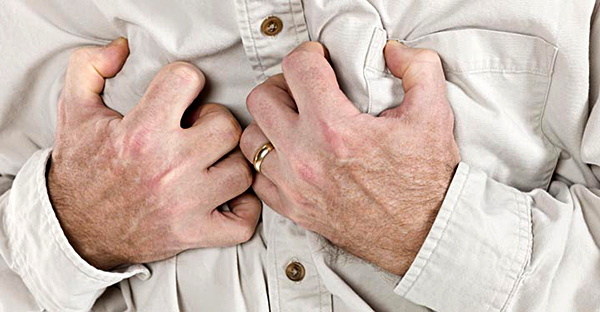Gastroesophageal reflux disease (GERD) occurs when liquids and foods that must naturally reach the stomach get back into the esophagus. When this happens, fluids, food, and stomach acid can irritate the throat.
Many people have shown or will experience heartburn during their lifetime. Although uncomfortable, heartburn is not usually a serious health problem in most people. However, if heartburn frequently occurs and is persistent, it may be a sign of a more serious medical problem, such as gastroesophageal reflux disease.
Gastroesophageal reflux disease is a chronic disorder involving backflow of stomach acid into the esophagus. Untreated, it can cause a number of complications, including esophagitis, esophageal ulcers, chronic lung disease and Barrett’s esophagus (a change in the lining of the esophagus that increases the risk of developing esophageal cancer).
Symptoms
The most common symptom of GERD is heartburn. Pain or discomfort caused by heartburn is located usually in the middle of the chest up to the top of the neck. In the case of patients with gastroesophageal reflux, heartburn is common, consistent and / or severe.
The most common symptoms of this condition include:
- Burning sensation in the chest just behind the breastbone, occurring after eating and lasts a few minutes or a few hours.
- Chest pain, especially when you bend down, you sit horizontally, or you eat.
- Burning in the throat or the presence of an acid, sour and salty liquid behind the neck.
- Difficulty in swallowing.
- The feeling that food sticks to the middle of the chest or neck.
It is possible for a person to suffer from gastroesophageal reflux and experience one or more symptoms listed above, but without having heartburn.
Other less common symptoms of GERD include:
- Sore throat
- Hoarseness especially in the morning
- Coughing
- Respiratory problems like asthma
- Bad breath
Report these symptoms to your doctor, it is necessary to diagnose the disease. The specialist may consider special tests such as endoscopy or gastric pH monitoring, to determine the seriousness of the problem and to recommend appropriate treatment.
Causes
Even though causes of gastroesophageal reflux disease are not always known, certain risk factors increase a person’s likelihood of developing this condition. However, just because a person is exposing to these risk factors, does not mean that it will automatically suffer from gastroesophageal reflux disease.
Here are listed some of the risk factors:
– Hiatal hernia. The esophagus passes through an opening in the diaphragm called the hiatus, which helps to close the lower esophageal sphincter. Hiatal hernia occurs when a small portion of the stomach and sphincter are pushed through the hiatus chest cavity. This can cause weakening of the sphincter, and it will not be able to block the acid reflux effectively.
– Task. Many women develop GERD during pregnancy. Nearly half of pregnant women experience heartburn at some time, and up to 25% of them suffer from heartburn daily.
Some doctors believe that this is because when fetus grows puts pressure on the stomach pushing it to the diaphragm. Such increased pressure on the stomach can cause the lower esophageal sphincter to open, even when not needed. Thus, acid reflux occurs. Also, normal hormonal changes that occur during pregnancy can weaken the sphincter, being another factor that can trigger the gastroesophageal reflux disease.
– Smoking
Certain foods may increase the risk of developing gastroesophageal reflux or worsen the symptoms of this condition. Among these are:
- Chocolate
- Mint
- Fatty foods
- Tomato products
- Soft drinks with caffeine
- Alcohol
- Citrus fruits and juices
- Certain food spices
– Use of certain medications. Some medicines may increase the risk of developing gastroesophageal reflux. These drugs include certain birth control pills, tricyclic antidepressants used to treat depression, anticholinergic drugs and calcium channel blockers used to treat hypertension, chest pain or arrhythmias.
– Alcohol consumption
– Overweight or obesity
– High levels of stress
There are several treatment options for people suffering from gastroesophageal reflux disease. The doctor is the one who will decide which treatment is appropriate, depending on a number of factors such as:
- The severity of symptoms
- Symptoms intervals
- How much the life of the patient is affected by these symptoms
- What other treatment has been tried in the past
Other treatment methods
– Changing lifestyle, and diet – Depending on the situation of each patient, symptoms may improve only through simple changes in diet and lifestyle. Many people find that there are several elements that worsen symptoms. For that, it may take some time to experiment and find out exactly what to change in diet, or what changes need to be made in lifestyle to blur the disease manifestations.
– Medication – As part of treatment for gastroesophageal reflux, your doctor may prescribe medications to decrease stomach acid production. Other medications help the efficiency of the lower esophageal sphincter contraction, helping it to better close the stomach and esophagus.
– Surgery – If the combination of dietary changes, lifestyle, and drug therapy are not effective, your doctor may also recommend surgery. Surgery can be done with the assistance of a laparoscope, which leaves less visible scars.


